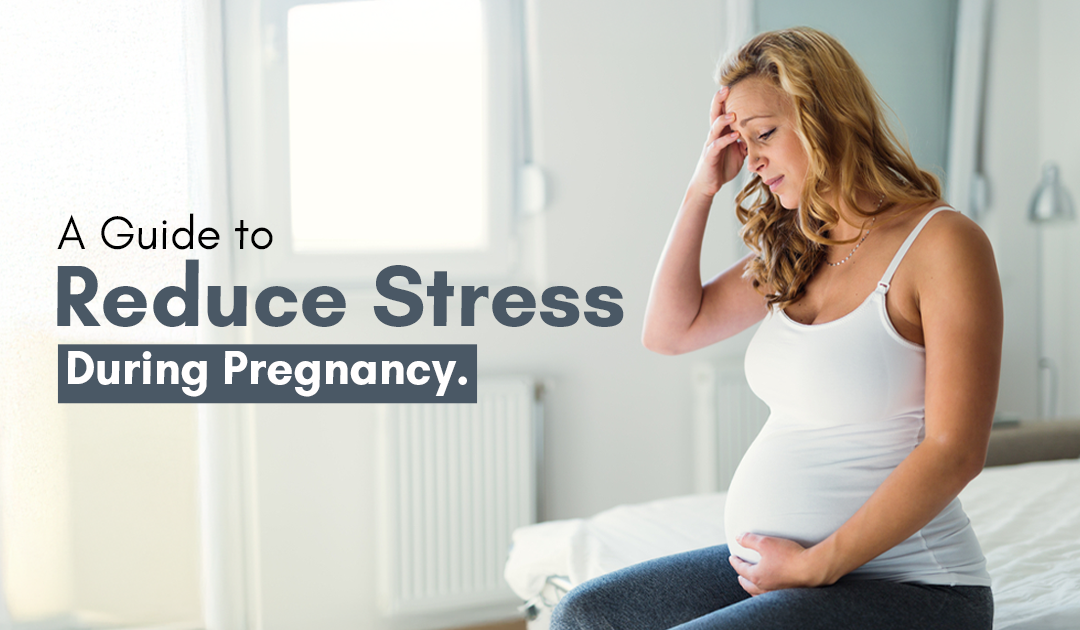After reading every birthing article on the internet, enrolling in different classes, worrying about what you can or can’t eat while your hormones are acting up, it is obvious that you feel both overwhelmed and stressed.
However, here’s the good news- this is completely normal. Let us understand the factors that lead to pregnancy stress, its kinds and why it occurs.
What is the Cause of Stress During Pregnancy?
There are several reasons why a woman may feel stressed during her pregnancy. They consist of:
- Fear of loss of pregnancy
- Fear of giving birth or delivery
- Uncomfortable changes in the body such as fatigue, nausea, mood swings and back pain.
- Fear of falling behind at work or work-related tasks.
- Regularly assisting the employer so they may prepare for the maternity leave.
- Fear of tending to the baby
- Fear of managing finances for raising a child.
To add one more, there is of course the perpetual stress of being stressed!
What are the Kinds of Stress?
It is important to note that no stress is in equal quantities or has the same source. It’s usually a mix of all factors given above. Stress is a part of life and not necessarily a thing to worry about. As the old saying goes, worrying for your baby is a good sign that you care and will be a good parent!
Sometimes, external factors may also influence the feeling of stress. A disagreement with your partner or an upcoming deadline at work may make you feel overwhelmed or stressed. However, this is not long-term and goes away sooner as compared to the stress about the baby.
On the other hand, stress which is chronic may be harmful. Especially during pregnancy, the stress you can’t get away with may even increase the possibility of a complication such as premature birth and low birth rate. This occurs because your body conducts itself in a fight or flight mode where it produces a large amount of stress hormones which in turn, may affect the baby’s stress management system.
The following significant stressors have the greatest impact on you and your child:
- Major life transitions, like a divorce, a death in the family, or losing your job or house
- Long-term difficulties, including financial difficulties, health problems, abuse, or depression.
- Natural disasters, like hurricanes, earthquakes, or other unanticipated catastrophic occurrences
- Exposure to racism, which is a daily challenge for members of minority groups.
- Severe pregnancy-related stress, including a more than usual worry of delivery, the baby’s health, and baby care.
Disaster survivors may suffer from post-traumatic stress disorder (PTSD). They are more likely to give birth to a child that is underweight or born too soon. If this sounds like you, speak with your healthcare provider or therapist so they can put you in touch with resources.
How to Reduce Stress During Pregnancy?
Having stress is difficult but it doesn’t have to be that way. You can get relief by these few methods:
- Speak to someone you trust: This may be anyone—your partner, best friend, mother, doctor, therapist or even another pregnant woman. You may search for a Mom’s group online or in real life so you may find an outlet to vent and share your feelings. Being heard is extremely essential and that is why having a support system helps in pregnancy.
- Try asking for help: While this may come naturally to you, learn to delegate your tasks and ask for help whenever necessary. Your family, friends, and co-workers may even love to help, if asked. You can even get help in creating a baby registry, which may include curating a few meals to be kept in the freezer for later consumption or accompanying you in shopping for cribs.
- Eat healthy, stay healthy: Focus on the good old advice—eat, rest and exercise. While your cravings are at an all-time high, make sure that you are not stress eating. Go for balanced meals, drink enough water and avoid sugar as much as you can. Try to go to bed before your usual time and engage in a nap whenever you can. You may also rely on low-impact exercises such as walking or swimming, or even sign up for a prenatal yoga class near you.
To conclude, you’re not alone in this journey. Being stressed in pregnancy is extremely normal and mostly not a sign of concern. The important thing to keep an eye on is chronic stress, which may impact you and the baby’s healthy development. However, with a few small steps, you may minimize the stress and have a healthy pregnancy.

